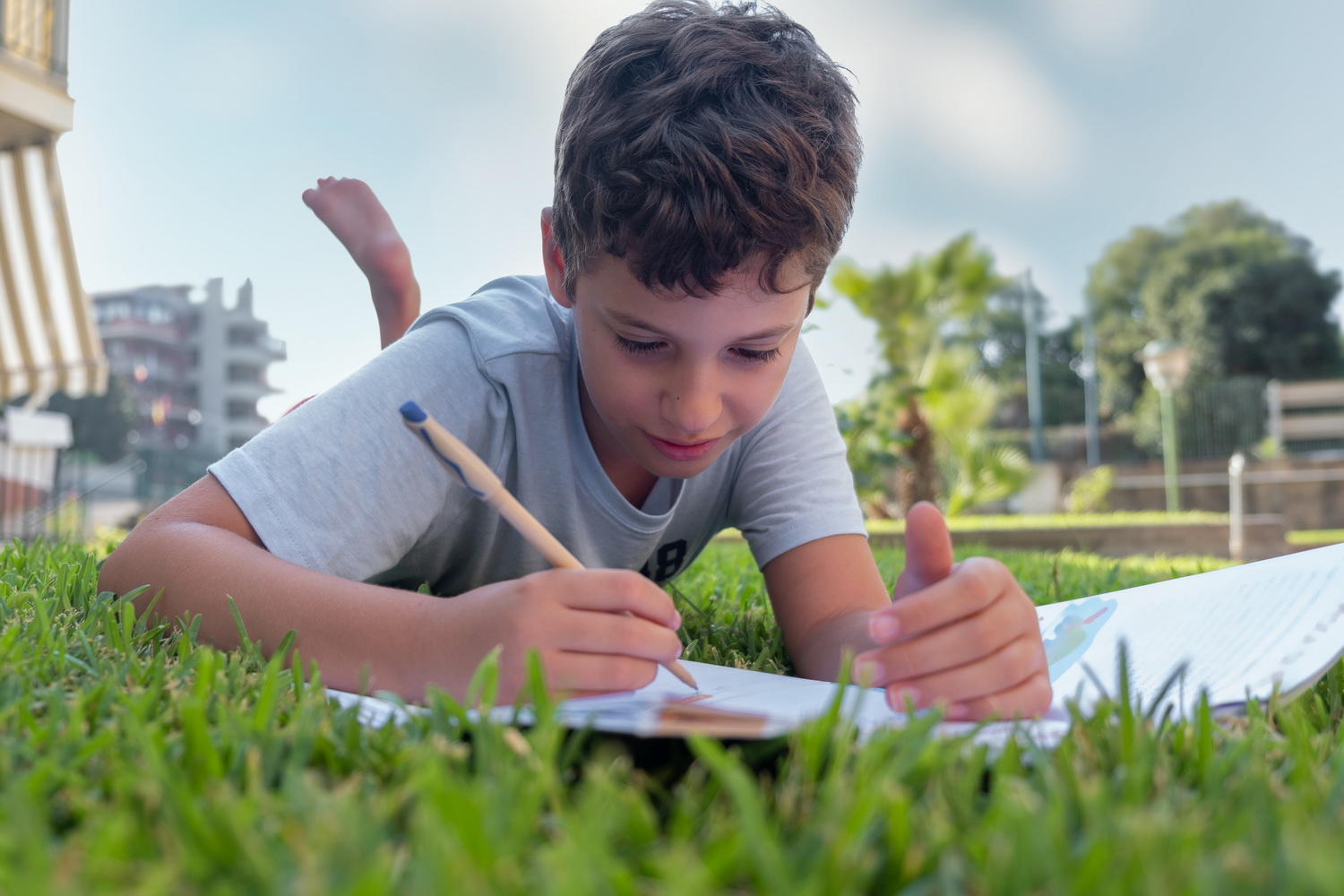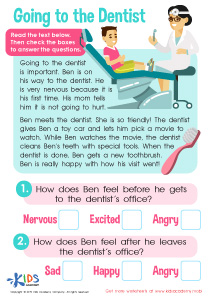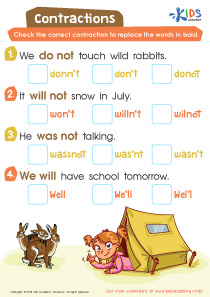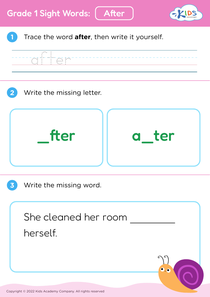Vocabulary Building Grade 1 Reading Fiction Worksheets
6 filtered results
-
From - To
Boost your child's vocabulary with our Grade 1 Reading Fiction Worksheets at Kids Academy! These engaging worksheets are designed to help first graders build essential vocabulary skills through fun and interactive fiction stories. Each worksheet includes exercises that expand word knowledge, improve reading comprehension, and enhance critical thinking. Our carefully crafted activities make learning new words enjoyable and reinforce understanding through context and repetition. Give your first grader the tools they need to excel in reading and language arts while fostering a love for literature. Visit Kids Academy and start enhancing your child's vocabulary today!
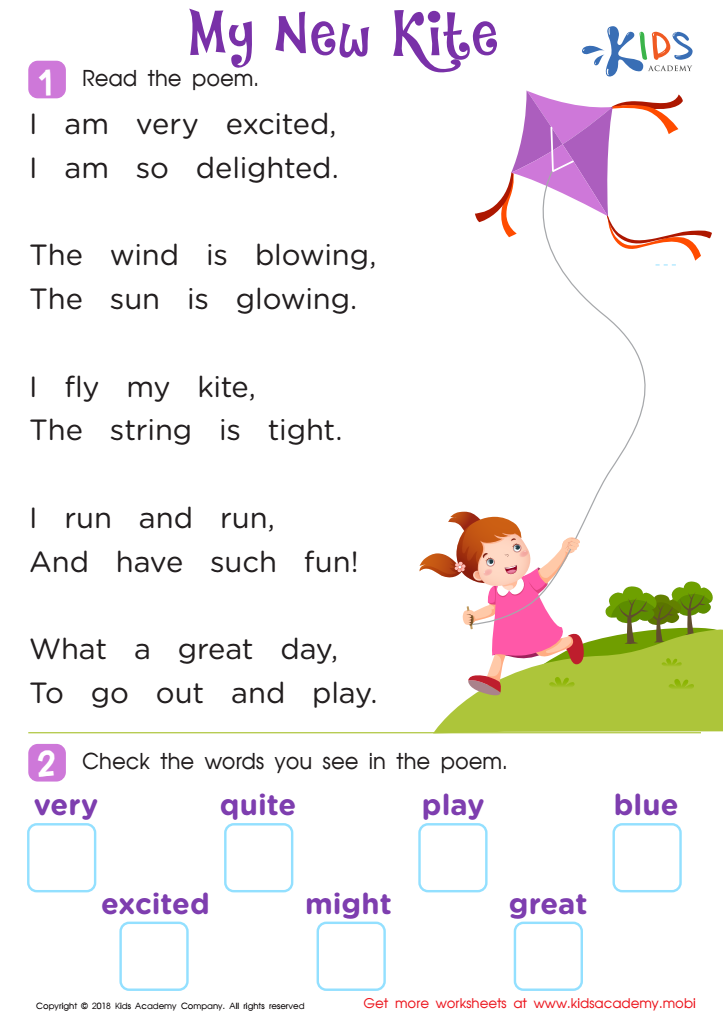

Poem: My New Kite Worksheet
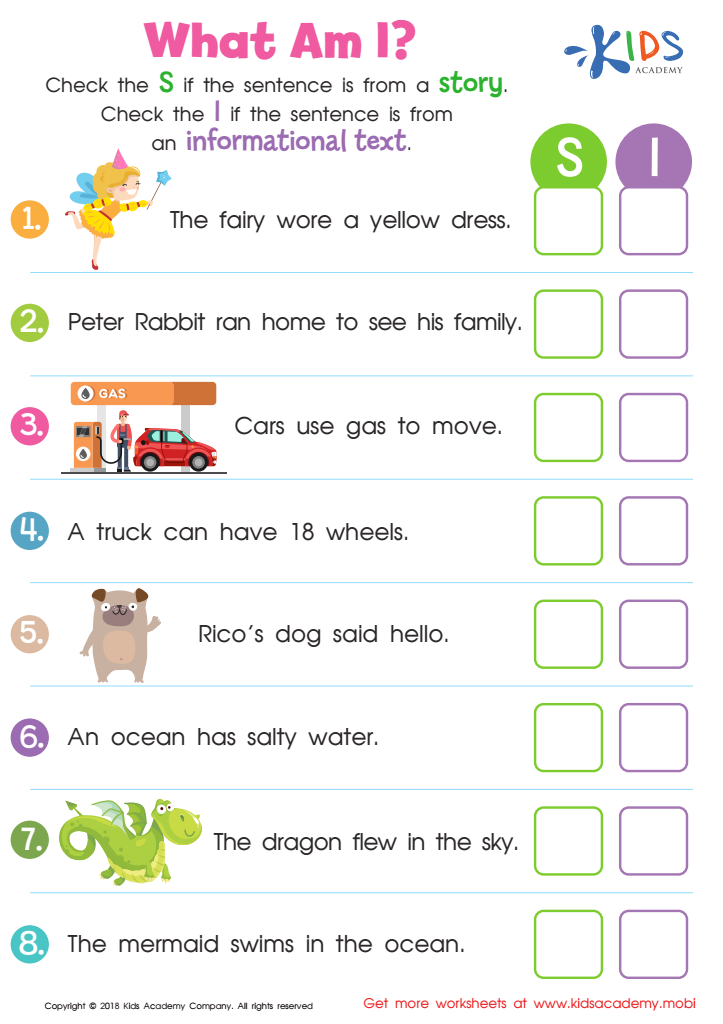

What Am I? Worksheet
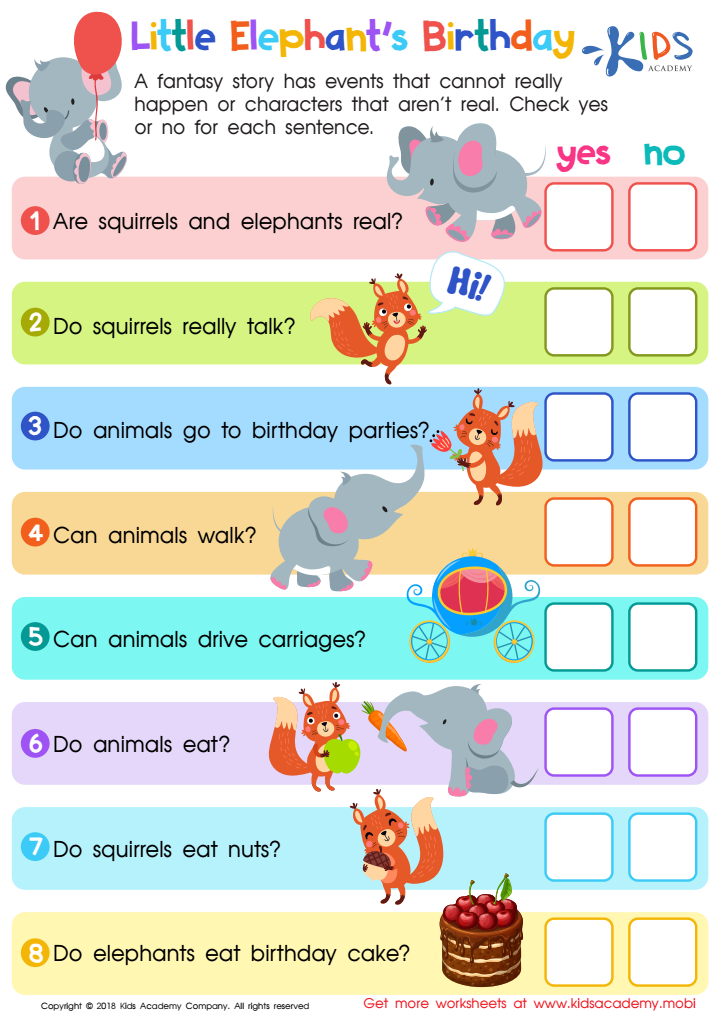

Little Elephant's Birthday Worksheet
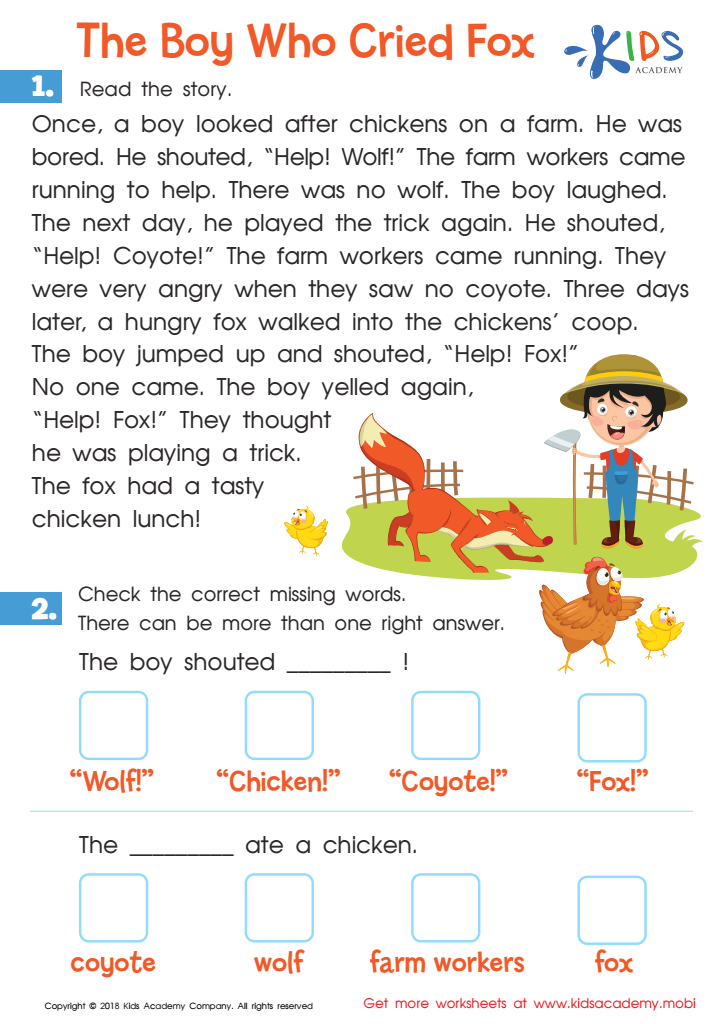

The Boy Who Cried Fox Worksheet
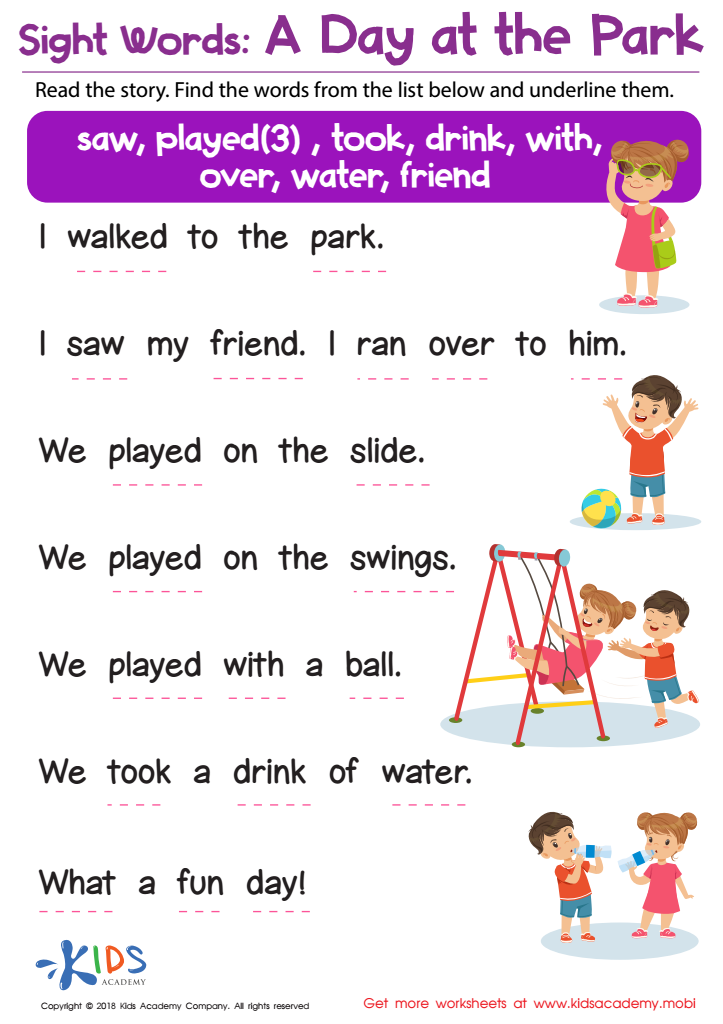

Sight Words: A Day at the Park Worksheet
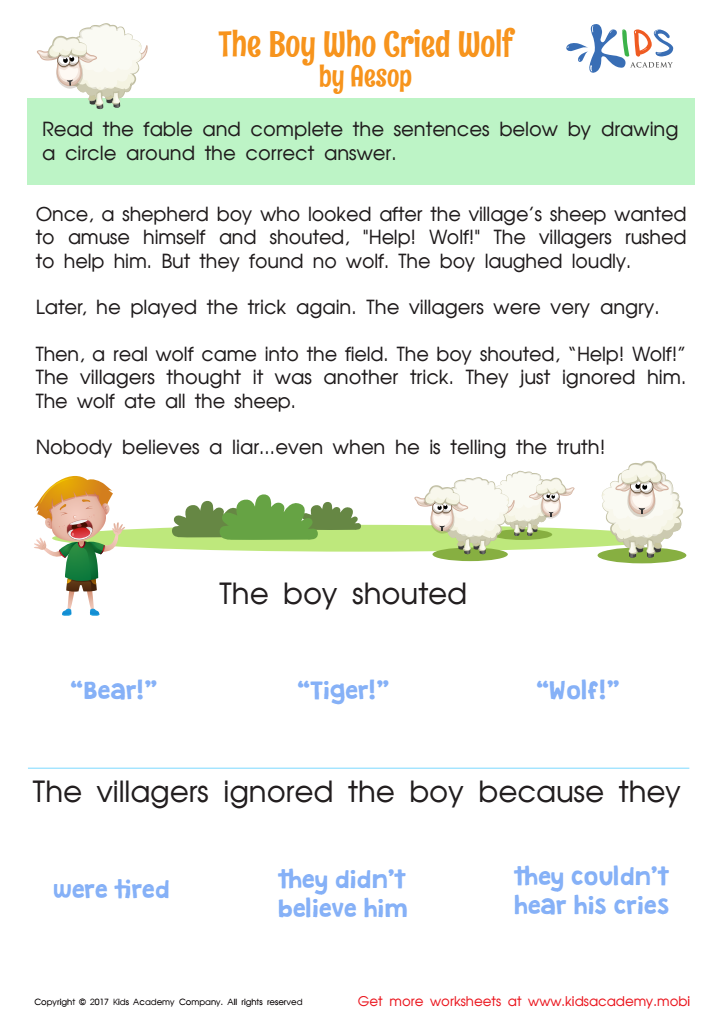

The Boy Who Cried Wolf Worksheet
Parents and teachers should care about vocabulary building in Grade 1 when reading fiction because it sets the foundation for a child's literacy and overall learning success. At this critical stage, students are not just learning to read; they are also developing skills that will help them understand and engage with the world around them. A robust vocabulary enhances reading comprehension, making it easier for children to decode new words and grasp complex ideas conveyed through stories. Fiction, with its rich and varied language, provides an excellent medium for introducing new words in a meaningful context.
Additionally, a strong vocabulary equips children with the tools to express their thoughts, emotions, and needs more effectively, which is fundamental for social-emotional development. It boosts their confidence in both verbal and written communication, making it easier for them to participate in class discussions and social interactions. Also, vocabulary building fosters curiosity and a love for reading by making stories more interesting and engaging. When children understand the words they encounter in stories, they are more likely to enjoy reading, which is crucial for fostering a lifelong love for books.
In summary, by prioritizing vocabulary building through fiction in Grade 1, parents and teachers can greatly enhance a child's reading comprehension, communication skills, and overall academic enthusiasm.

 Assign to My Students
Assign to My Students


